|
A joint concert featuring Chantage and Chœur43
Saturday 8 June 2024 Eglise Anglicane de Paris, 7 Rue Auguste Vacquerie, 75016 Paris, France We visited Paris for a special Franco-British choral concert on the occasion of the 120th anniversary of the Entente Cordiale. St Dunstan in the West, London Thu 18th April 2024 The concert featured music inspired by birds, flight, folksong and the landscapes of the British Isles, with new works for choir and solo violin. A highlight was a performance of Ralph Vaughan Williams' Lark Ascending, arranged for choir and solo violin. We were joined for the concert by the superb violinist, Lizzie French. Artwork and design by In This Room studio
For the first time, we performed two Christmas concerts in a single day - a relaxed performance for families in the afternoon followed by an evening concert!
On Thursday 2 November 2023, Chantage performed Rachmaninoff's All-night vigil Op.37 (sometimes known as the ‘Vespers’) by candlelight, marking 150 years since the composer's birth. The All-night vigil is a beautiful and moving setting of texts from the Russian Orthodox Church liturgy. It was composed in just two weeks in January and February 1915 shortly before the Russian Revolution and is considered by many to be the culmination of an era of Russian sacred music. Rachmaninoff was so fond of the work that he requested that the ‘Nunc Dimititis’ be sung at his funeral. An introductory talk was delivered by Irina Walters, lecturer on Russian and Eastern European choral music. The performance took place at St Dunstan in the West, the spiritual home of the Romanian Orthodox Church in London for over 50 years.
Saturday 22 June at St Luke's Church, Chelsea.
Programme included:
Programme notes I was Glad – Parry Sir Hubert Parry (1848-1918) composed this setting of verses from Psalm 122 for the Coronation of King Edward VII in 1902, revising it for George V’s Coronation in 1911 by adding a more impressive introduction. Settings of the text by Purcell, John Blow and other musicians had been sung at previous Coronations, but it is Parry’s revised anthem that has been used subsequently, as well as being performed on State occasions and at royal weddings. At the Coronation of Queen Elizabeth II on 2 June 1953, the anthem was sung as the Queen entered at the west door of Westminster Abbey and processed into the Church. Again on Saturday 6th May 2023, the monumental piece opened the ceremony for the coronation of King Charles III. Despite his father’s opinion that music was not a suitable career for a gentleman, Hubert’s musical talent was nurtured at his prep school and while still at Eton he became the youngest student to gain a BMus from Oxford. He read law and modern history at Oxford, but kept up his musical studies while working in insurance until his compositions came to public notice. Having been employed by George Grove of the great new Dictionary of Music and Musicians, he was eventually appointed to the staff of the new Royal College of Music. When Grove retired as director of the RCM, Parry succeeded him and held the post until his death. The full choir begins the anthem, then divides into two at the words ‘Jerusalem is builded’. The central section, a contemplative prayer for the peace of Jerusalem, is sung by the semi-chorus before the whole choir re-combines and the music builds to its final climax. I was glad when they said unto me, We will go into the house of the Lord. Our feet shall stand in thy gates, O Jerusalem Jerusalem is builded as a city that is at unity in itself. O pray for the peace of Jerusalem, they shall prosper that love thee. Peace be within thy walls, and plenteousness within thy palaces. - Book of Common Prayer, 1662, Psalm 122, vv 1-3, 6, 7 * * * * * * * * * I sat down under his shadow - Bairstow Sir Edward Bairstow, organist of York Minster from 1913 until his death, typifies the English organist-composer of the earlier part of the twentieth century: conservative, craftsmanlike, often imaginative, gifted with a real feeling for choral sonority and word setting. I sat down under his shadow, which appeared in 1925, was one of the earliest publications of the then newly-established music department of the Oxford University Press. Its mystic, slightly oriental flavour suggests connections with Bairstow’s exact contemporary, Holst. * * * * * * * * * Messe Solennelle - Langlais Jean Langlais was blind, having completely lost all sight by the age of 3 and with “no memory of light”. He had the good fortune to attend the Institution National des Jeunes Aveugles (National Institute for Blind Youth) in Paris, a remarkable boarding school which fostered the musical talents of numerous eminent blind French musicians from the early 19th century, allowing them to begin musical careers which many would undoubtedly never have had without it. At the age of 16 he began organ lessons with André Marchal, another blind organist who had attended the Institution as a child. In adulthood, Langlais, like Marchal, returned to teach at the Institution, doing so for forty years. In 1927, Langlais entered the Paris Conservatoire as an organ student under Marcel Dupré, where his contemporaries included Duruflé and Messaien. Composing more and more, he commenced lessons with Paul Dukas, who taught him orchestration. Langlais became a noted recitalist, especially in America which he toured extensively, giving almost 300 recitals and master classes. He almost seemed to refuse to acknowledge his blindness, refusing to have a guide dog and sustaining a number of serious traffic accidents as a result. In 1984 he suffered a stroke which left him with partial brain damage, but he recovered to the extent that he was able to begin to give organ recitals again, giving one to great acclaim at Notre Dame in 1986 at the age of 79. He died in Paris in 1991, aged 84. Langlais’s method of composition was remarkable. He would compose a piece in his head in great detail over a long period, then write it in shorthand in Braille, then dictate the name of every note and its rhythmic value to an amanuensis to produce the full score. Although this transcription process was laborious, it was accomplished comparatively quickly because the mental process had been so rigorous; Langlais said of his Messe Solennelle that he had thought about it for twelve years and composed it in thirteen days. Despite this cumbersome compositional process, Langlais was a prolific composer, writing almost three hundred pieces for organ and a large number of choral works. Composed in 1951, the Messe solennelle is perhaps Jean Langlais’ best-known choral work. It is very much in the tradition of French masses from the late 19th and early 20th centuries which were composed specifically for liturgical use. As a result, despite its title, it is a comparatively short work, unlike, for example, the Missa Solemnis of Beethoven. The Credo is not set, though the title Solemn Mass would usually indicate that the Ordinary of the Mass was set in full; technically, a mass such as this should be called a Missa Brevis. The piece is scored for four-part choir and two organs, written with the traditional French cathedral configuration in mind: passages of music on the Grand Orgue, which would usually be situated high up on the west wall of the cathedral, alternate with choral sections accompanied by the smaller Orgue de Choeur situated near the choir towards the east end. In the absence of two suitable organs, however, the work can be played on one. Langlais’ language is characterised by melodies which—although original creations—show a distinct affinity with plainsong. These, combined with vivid modal writing, striking use of quasi-mediaeval parallel fourths and fifths, a colourful control of dissonance, and a mastery of the organ’s tonal palette, give the work an arrestingly unique and instantly recognisable quality. Translation: Kyrie Lord, have mercy. Christ, have mercy. Lord, have mercy. Gloria Glory be to God in the highest. And in earth peace to men of good will. We praise Thee; we bless Thee; we worship Thee; we glorify Thee. We give thanks to Thee for Thy great glory. O Lord God, Heavenly King, God the Father Almighty. O Lord Jesus Christ, the only begotten Son. Lord God, Lamb of God, Son of the Father. Thou that takest away the sins of the world, have mercy upon us. Thou that takest away the sins of the world, receive our prayer. Thou that sittest at the right hand of the Father, have mercy upon us. For thou only art holy, thou only art the Lord, thou only art the most high, Jesus Christ. Together with the Holy Ghost in the glory of God the Father. Amen. Sanctus Holy, Holy, Holy, Lord God of Hosts. Heaven and earth are full of Thy glory. Hosanna in the highest. Benedictus Blessed is He that cometh in the name of the Lord. Hosanna in the highest. Agnus Dei Lamb of God, Who takest away the sins of the world, have mercy upon us. Lamb of God. Grant us peace. * * * * * * * * * Taaveti Laul Nr. 104 – Kreek Estonian composer Cyrillus Kreek studied at St. Petersburg Conservatory before the Russian Revolution. A music teacher in Haapsulu in western Estonia for a time, he collected the folk music of his country and was the first Estonian to use the phonograph for that purpose. His transcriptions included collections of folk hymn tunes and folk music from Estonia's Swedish villages. Over the course of his career, along with his students he collected over 1300 songs. His output contains nearly 700 folk tunes, 500 chorales, and a dozen instrumental suites based on Estonian dance and song tunes. Kreek's folksong collections are held in the Estonian Folklore Archives, Literary Museum, Tartu. Kreek briefly held stints as professor at the Tallinn conservatory in 1940-41 and 1944-50, but was forced to leave that position during Soviet occupation as he was labeled a 'bourgeois nationalist’ by the government. He is known for being particularly influential in the creation of a nationalistic Estonian musical style. The text of this work, which is a part of a collection of psalm settings, comes from Psalm 104. Bless the Lord, O my soul. Praise the Lord! O Lord my God, Thou art very great. O Lord, how manifold are thy works! In wisdom hast thou made them all. Glory be to Thee, O Lord, Who has made all things. Glory to the Father, the Son, and the Holy Spirit. Now and evermore. Amen. * * * * * * * * * Alleluia - Runestad One of the youngest full-time composers in the world, Jake Runestad earned a Master’s degree in composition from the Peabody Conservatory where he studied with Pulitzer Prize-winning composer Kevin Puts. The recipient of a 2017 McKnight Fellowship, Runestad has earned numerous awards for his music, including the prestigious Raymond W. Brock Commission from the American Choral Directors Association. He also won the 2016 Morton Gould Young Composer Award from The ASCAP Foundation. In addition to composing socially conscious music that aims to initiate positive change, Runestad is frequently engaged as a composer-in-residence and guest conductor with ensembles and institutions across the globe. Commenting on the character of his Alleluia setting (composed in 2013, premiered in 2014) Runestad writes, “Through history, the singing of ‘alleluia’ has served as an outward celebration as well as an introspective expression of praise.” * * * * * * * * * Cantate Domino - Jansson Mårten Jansson (b.1965), is an elected member of the Föreningen svenska tonsättare (the Society of Swedish Composers). He graduated from the Kungliga Musikhögskolan (Royal College of Music), Stockholm with a MFA degree in Music Education, Dalcroze Eurhythmics and Voice. For more than ten years he was the music director and conductor of “Carmen”, one of the most prominent women's vocal ensembles in Sweden. Working with this choir gave Jansson the impetus to write many of his early compositions for female choir. “The knowledge that what I wrote at night would be tested the next evening was a driving force that not many other composers were lucky to have”. He currently teaches choral conducting and music theory as well as giving vocal tuition at the Uppsala Estetiska Gymnasium and Uppsala Kulturskola in his home town of Uppsala. Mårten Jansson writes: "My music is my own and I have never tried to be original. That has always been my motto and I have only tried to use music to express all the feelings life consists of. This has led people to describe my music as both ”so sad that it sounds like birds who have lost their wings” and ”the happiest classical music we ever heard”. I have also always preferred beautiful music to atonal music and that is surely the reason why the most part of my music is more on the sad side – but what a dream it would be to be able to create beautiful music that’s bubbling over with joy! My compositions consist of almost only sacral music. This is to express my own faith but also my appreciation and respect for the timeless texts that have been used for centuries after centuries." Cantate Domino (Psalm 96:1–3) was originally written for male choir. By adding women’s voices, the version for mixed choir presents a further dimension of colour. This version also makes it possible to divide the choir into two groups, one for women and another for men, and to have them sing either together or as separate units. The version for mixed choir was premiered in Uppsala Cathedral (Sweden) on 26 October 2013, with the Uppsala Cathedral Singers conducted by Ulric Andersson. Sing to the Lord a new song, Sing and give praise to his name: for he has done marvellous deeds. Sing and exult and praise. in songs with the harp and the voice: for he has done marvellous deeds. NB: Don't miss your chance to pick up a copy of Chantage's CD of Choral Music by Mårten Jansson, on sale after the concert. * * * * * * * * * Wade in the water - Trad. arr. Luboff Chicago born, Norman Luboff, forged his musical reputation as a conductor/arranger in Hollywood, working with favourite celebrities such as Bing Crosby, Frank Sinatra and Doris Day. His own group, the Norman Luboff Choir, became one of the leading choral groups in the world, recording more than 75 LP’s and touring for nearly 25 years until he died in 1987. The roots of this traditional spiritual are as a coded signal song, in which a certain event, such as a planned escape from a plantation, was imminent. Specifically, the hidden meaning of this spiritual is a reminder “to wade in the water to throw the bloodhounds off your scent” as you travel along the Underground Railroad. * * * * * * * * * The tide rises the tide falls - Mäntyjärvi Jaakko Mäntyjärvi is a professional freelance translator and composer, and also an amateur and semi-professional choral singer and conductor. He is one of Finland’s internationally best known composers of choral music, with a catalog of some 150 works published to date. He has given talks on his works at various choral events in Europe, the USA and Australia, and has occasionally given a course on the history of choral music at the Sibelius Academy. As a composer, Jaakko Mäntyjärvi describes himself as an eclectic traditionalist: adopting influences from a number of styles and periods, and basing his musical idiom largely on traditionally oriented materials. Because he is himself active in making music, his music is very practically oriented; most of his works are for choir. Longfellow’s poem about the unchanging swell of the sea and the transitoriness of human life is a small but profound one, and this setting is principally built on a small gesture: a slowly breathing motion that reflects the wash of waves on the shore. A number of brighter moments emerge from the fog, as it were, but on the whole the music both emerges from and retreats into silence. * * * * * * * * * Her Army - Cumming-Wesley Written by the poet Siobhan Tebbs, Her Army is an abstract reflection upon the role of nature – particularly the ocean – as a reassuring constant in all our lives, regardless of the challenges we are facing. There are subtle references to mental health, anxiety and (temporary) joy, and a not-so-subtle reference to the fact that, inevitably, regardless of our choices, feelings or opinions, the ocean will endure. The text is set to music by Jamie Cumming-Wesley (the poet’s brother). The music is as much shaped by the sounds of the words as by their meaning. Her Army has a loose form in relation to both harmony and melody. Jamie is inspired by the works of Eric Whitacre, Arvo Pärt and Gabriel Jackson. * * * * * * * * * Tears in Heaven - Clapton arr. Burton Eric Clapton's meandering and groundbreaking musical career has been punctuated by extreme personal hardship and tragedy. He was raised believing that his grandparents were his parents and his mother was his sister, to shield him the stigma that illegitimacy carried with it. The truth was eventually revealed to him, at the age of nine by his grandmother. Later, when Eric would visit his mother, they would still pretend to be brother and sister. He commenced studies at the Kingston College of Art, but his intended career path in stained-glass design ended permanently when the blues-obsessed Clapton was expelled at seventeen for playing guitar in class. In late 1990, the fates delivered Clapton a terrible blow when guitarist Stevie Ray Vaughan and Clapton road crew members Colin Smythe and Nigel Browne--all close friends of Clapton's--were killed in a helicopter crash. A few months later, he was dealt another cruel blow when Conor, his son by Italian model Lori Del Santo, fell forty-nine stories to his death on March 20, 1991 from an open window in Del Santo's Manhattan high-rise apartment. "Tears in Heaven," is a heart-rending elegy to his young son, Conor. Clapton then recorded it in a concert for MTV Unplugged that, when released on an album in August, became his biggest-selling record ever. (Clapton received a total of six Grammys that year for the single and for the album Unplugged.) * * * * * * * * * Swimming Over London - Chilcott This is the first piece that poet Charles Bennett worked on with composer Bob Chilcott. It sets a poem from 'How to Make a Woman Out of Water', which was adapted and revised for the King’s Singers. Chilcott’s ravishing setting sparked a very productive collaboration, and this song (described as his favourite in a podcast by Stephen Connolly) was chosen as the title for the King’s Singers’ CD titled, Swimming Over London. The song is described as a vivid musical depiction of the colourful dreamscape created in Charles Bennett’s text. The solo tenor floats over the soft, jazzy harmonies of the other voices as he narrates the journey through London’s sky, noting the ‘blackbirds in the sleeping streets’ and a taxicab slumbering below. * * * * * * * * * All Creatures now - Bennet The madrigal, imported from Italy in 1588, rapidly became the most important secular form in late Tudor England. John Bennet’s All creatures now, was written in 1601 for The Triumphs of Oriana, a volume of madrigals by different composers written in honour of Elizabeth I. Each ends with the refrain “Long live fair Oriana”, though ironically the volume was not published until after her death in 1603. All creatures now are merry minded, The shepherd's daughters playing, the nymphs are falalaing. Yon bugle was well winded. At Oriana's presence each thing smileth. The flow'rs themselves discover, Birds over her do hover, Music the time beguileth, See where she comes, with flow'ry garlands crowned, Queen of all queens reknowned. Then sang the shepherds and nymphs of Diana, "Long live fair Oriana!" * * * * * * * * * All in the April Evening - Roberton Sir Hugh Roberton’s background was linked to the Independent Labour Party, for whom he sometimes lectured on such subjects as ‘Music and Democracy’. He was a self-taught conductor, composer, poet, and dramatist, most celebrated throughout the first half of the twentieth century for his conducting of the Glasgow Orpheus Choir which drew principally on working-class singers from Glasgow’s Rottenrow and East End. Though Roberton’s choir’s origins dated back to 1901, by the mid-1920s it was still regarded as innovative and its fame was widespread. Its repertoire included many Scottish songs (not least by Robert Burns) as well as religious music; but its and Roberton’s most celebrated piece was probably his arrangement of a poem by Katharine Tynan about ‘the Lamb of God’, ‘All in the April Evening’, which Roberton had set to music in 1911. * * * * * * * * * The Song of the Blacksmith - Holst Gustav Holst has earned a place among the most revered of late 19th and early 20th century composers and is best known for his enduring Orchestral suite The Planets. In his use of authentic English folksongs, gnostic texts and Vedic hymns, one can discern Holst’s search for a compositional voice beyond the constraints of the European styles of the early 1900’s. In 1916 he published Six Choral Folk Songs, of which Hampshire folk tune The Song of the Blacksmith is the fourth. Holst uses the power of the mixed voice choir to set the song among onomatopoeic syllables to evoke the smithy, hammering at an anvil. The song is one verse long which Holst repeats not quite completely three times, like the endlessly spinning thoughts of a rejected lover, and with many disrupting changes to the meter. Kang, kang, kang ki ki kang kang. For the blacksmith courted me, nine months and better; And first he won my heart, till he wrote to me a letter. With his hammer in his hand, as he strikes so mighty and clever, He makes the sparks to fly all around his middle. * * * * * * * * * We have all the time in the world - Barry arr. Allain John Barry's "We Have All the Time in the World," sung by Louis Armstrong, from the soundtrack of the Bond film On Her Majesty's Secret Service (1969), was found in 2005 to be the third most popular choice for UK just-married couples' first dance (after Bryan Adams and The Carpenters). 'We Have All the Time in the World' was the secondary musical theme for the 1969 Bond film On Her Majesty's Secret Service. In the film, George Lazenby's Bond is distraught after his wife Tracy (Diana Rigg) is shot and killed. Bond says: "It's quite all right, really. She's having a rest. We'II be going on soon. There's no hurry, you see? We have all the time in the world." The song then plays over the film's ending credits. In his late 60s, Louis Armstrong was too ill to play his trumpet at the time, and it was played by another musician for the film, but John Barry chose Armstrong to sing on the song, because he felt he could "deliver the title line with irony". * * * * * * * * * Summertime - Gershwin arr. Williams Composed in 1934 by George Gershwin for his opera Porgy and Bess, Summertime soon became a popular and much-recorded jazz standard, described as "without doubt one of the finest songs the composer ever wrote. Gershwin's highly evocative writing brilliantly mixes elements of jazz and the song styles of blacks in the southeast United States from the early twentieth century". Gershwin began composing the song in December 1933, attempting to create his own spiritual in the style of the African American folk music of the period, with lyrics by DuBose Heyward (the author of the novel Porgy) and Ira Gershwin. The song was recorded for the first time by Abbie Mitchell, with George Gershwin playing the piano and conducting the orchestra. * * * * * * * * * Fix You - Coldplay arr. Wikeley British rock band Coldplay released the song "Fix You" in 2005. The song was written by Chris Martin, the band's lead singer and pianist, in response to the death of his mother. Martin said the song was an attempt to comfort his wife, actress Gwyneth Paltrow, after her mother's death. Fix You is the second single from Coldplay 's album X&Y . It received extremely positive reviews, award nominations and has been widely sampled. Chris Martin notes that it is, 'probably the most important song we have ever written.' Friday 24 March 2023 at St Simon Zelotes Church
Programme Immortal Bach J.S.Bach arr. Knut Nystedt O Nata Lux Thomas Tallis Crucifixus á 8 Antonio Lotti My Prayer (Psalm 102: 1) Bob Chilcott (after Henry Purcell) Haec Dies (Psalm 118: 24) William Byrd Drop, drop, slow tears from Crucifixus Pro Nobis Kenneth Leighton (words by Phineas Fletcher) Easter Chorale (Op.40) Samuel Barber (words by Pack Browning) Agnus Dei (transcribed from Adagio for Strings Op.11) Samuel Barber ---INTERVAL--- Thule, the Period of Cosmography The Andalusian Merchant Thomas Weelkes Her Army - WORLD PREMIERE Jamie Cumming-Wesley (words by Siobhan Tebbs) The tide rises, the tide falls Jaakko Mäntyjärvi (words by Henry Wadsworth Longfellow) Sea Songs For Choir - WORLD PREMIERE 1: The Sound 2: The Sea 3: The Sky Mike Dixon (words by Susan Penhaligon) Swimming over London Bob Chilcott (words by Charles Bennett) Programme notes HER ARMY Written by the poet Siobhan Tebbs, Her Army is an abstract reflection upon the role of nature – particularly the ocean – as a reassuring constant in all our lives, regardless of the challenges we are facing. There are subtle references to mental health, anxiety and (temporary) joy, and a not-so-subtle reference to the fact that, inevitably, regardless of our choices, feelings or opinions, the ocean will endure. The text is set to music by Jamie Cumming-Wesley (the poet’s brother). The music is as much shaped by the sounds of the words as by their meaning. Her Army has a loose form in relation to both harmony and melody. Jamie is inspired by the works of Eric Whitacre, Arvo Pärt and Gabriel Jackson. SEA SONGS FOR CHOIR Music by Mike Dixon - Poems by Susan Penhaligon Susan says: The Sound is about my father, who was in the Navy during WW2. Once, I sailed into Plymouth on a training yacht and passed all these decommissioned boats and I thought of him. The Sea was written for a fisherman I knew in St Ives. The Sky is about St Ives, my home town and the influx of visitors taking over every summer and how much I didn’t want it to change. Of course, it has. Mike says: I read Susan’s poems and they immediately invoked a musical response from me - they needed to be sung! I am originally from Plymouth so the words of the first one particularly take me back to the days of my youth, seeing the great ships along the river Tamar. They are in simple four part choral harmony and with tunes that are reminiscent of sea shanties from the past. We were delighted to join forces with the Harlequin Chamber Choir for a joint concert at the beautiful St Stephen Wallbrook in the City, as part of the Brandenburg Choral Festival on 11 June 2022.
The programme Saint-Saens - Calme des nuits (Combined choirs) Saints Seans - Les fleurs et les arbres (Combined choirs) Certon - La La La, je ne l’ose dire (Harlequin) Debussy - Dieu! Qu’il la fait bon regarder (Harlequin) Poulenc - Salve regina (Chantage) Andrews - O lux beata trinitas (Chantage) ____ McGlynn - Geantrai (Chantage) MacMillan - Gallant Weaver (Chantage) Taylor - Lonesome road (Chantage) Simon & Garfunkel - Sound of Silence (Harlequin) Runestad - Let my love be heard (Harlequin) Howells - Take him earth (Chantage) Harris - Bring us O Lord God (Combined choirs) With rehearsals and performances on hold for over two years due to the pandemic, it was a joy to finally perform together in front of an audience at St Mary's Iffley, near Oxford on 2 April 2022. All proceeds from the concert were donated to the Disasters Emergency Committee Ukraine Appeal.
Our programme Monteverdi – Cantate Domino Gesualdo - Ave Dulcissima Maria Byrd - Vigilate Lobo – Versa Est In Luctum Andrews - O lux beata trinitas Poulenc - Salve regina Saint-Saens - Calme des nuits Saint-Saens - Les fleurs et les arbes Britten - Chorale Old French INTERVAL Mantyjarvi - Shakespeare Songs Whitacre - Sleep MacMillan - Gallant Weaver Adele - Rolling in the deep Porter - The way you look tonight We marked our 20th birthday with a celebratory concert at St James Piccadilly. We partied like it was 1999 (in a choral sense that is). Joined by choir alumni, we performed a selection of our favourite pieces from the past 20 years, ranging from works by Frank Martin, William Byrd and Michael Tippett, to popular numbers by Britney Spears, James Taylor, Billy Joel and Gospel greats.
 Chantage joined forces with fellow chamber choirs Coro and ccFREIA to host the inaugural London International Choral Conducting Competition. During the course of the competition weekend, we worked with all six competition finalists, sang for youth conducting workshops and performed in a Gala Concert Performance. The highlight was the Grand Final performance, during which we sang new choral composition, 'The Cries of Music' by Janet Wheeler with each competitor and witnessed the announcement of the inaugural competition winner - Julia Selina Blank from Germany, |
Archives
June 2024
Categories
All
|
||||||
|
By subscribing to the mailing list, you agree to receive from us (but only us) emails detailing news, special offers, announcements and updates in accordance with our Data Privacy Notice.
|
|
|
Registered Company Limited by Guarantee - No. 5734117
|
© Chantage. ALL RIGHTS RESERVED.
|

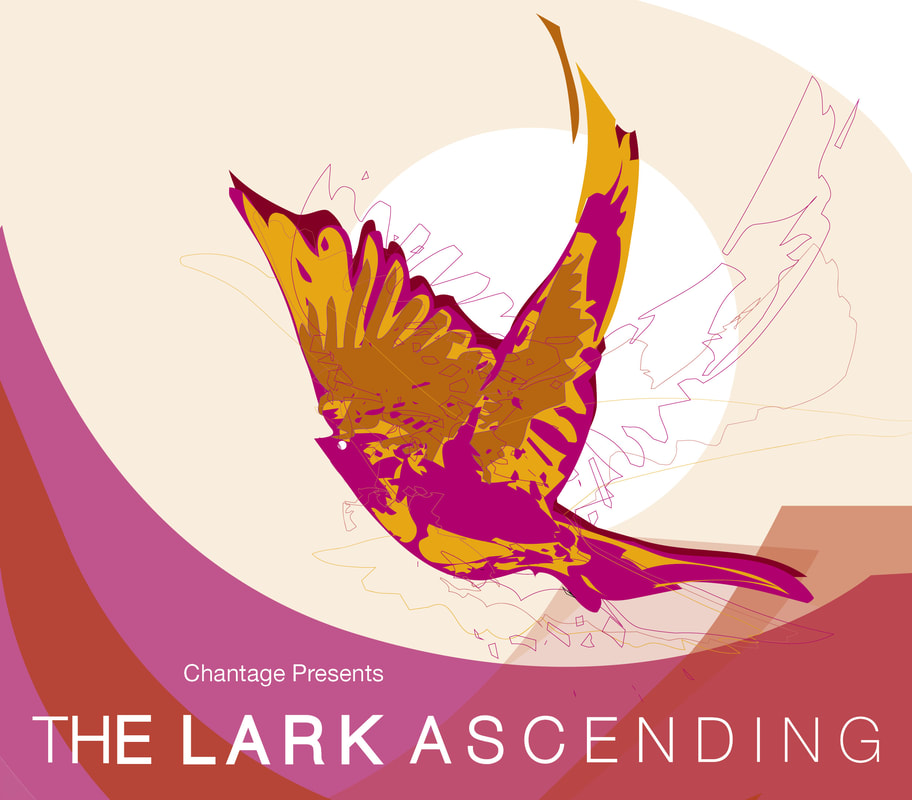
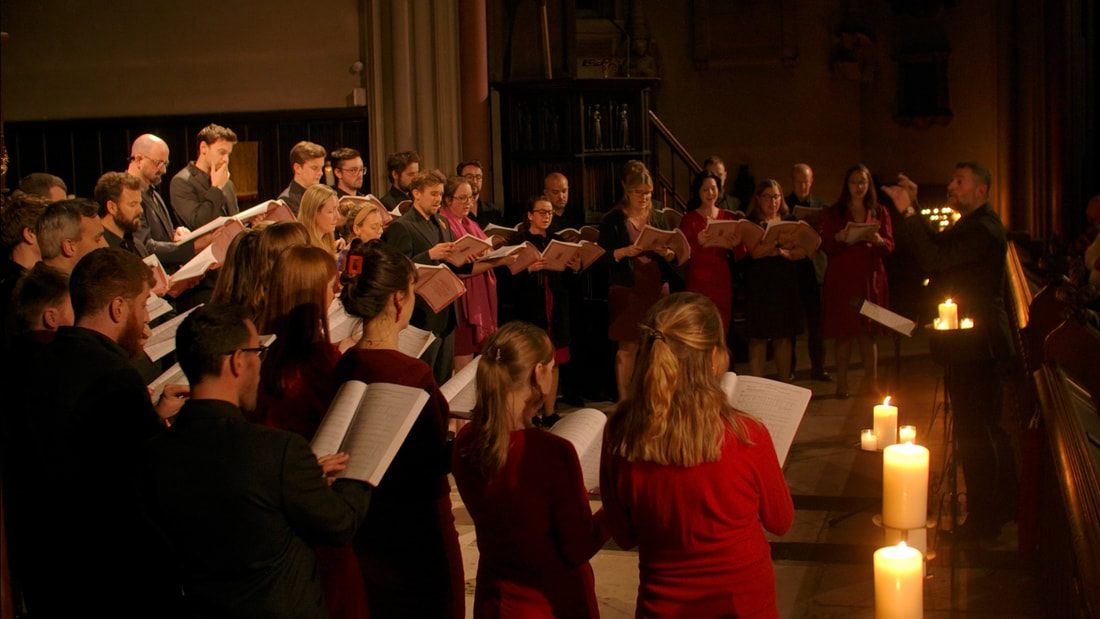
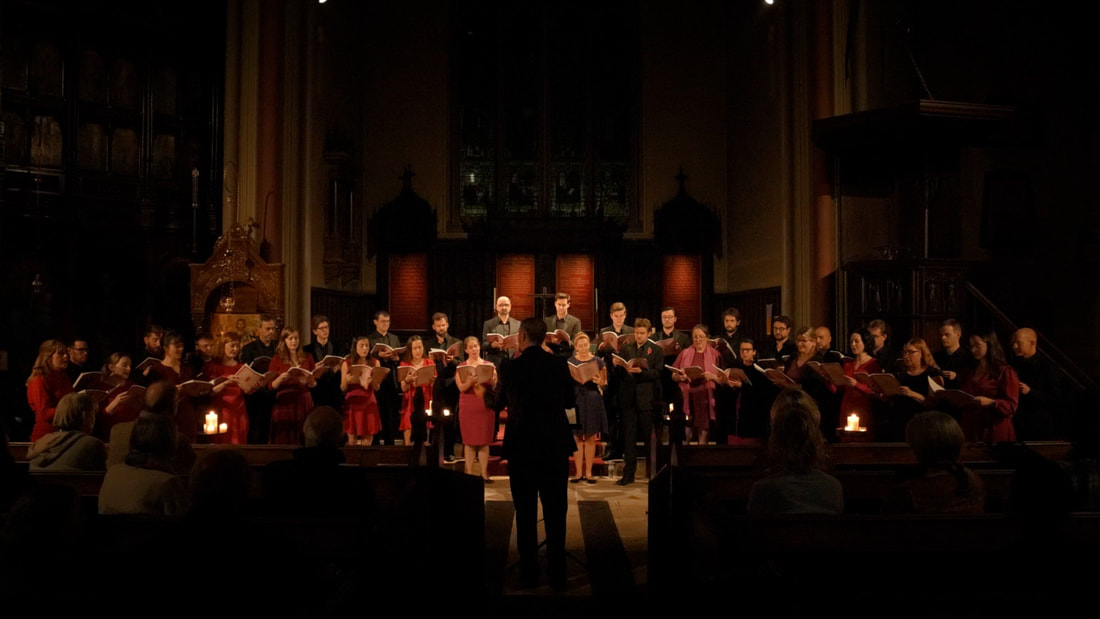
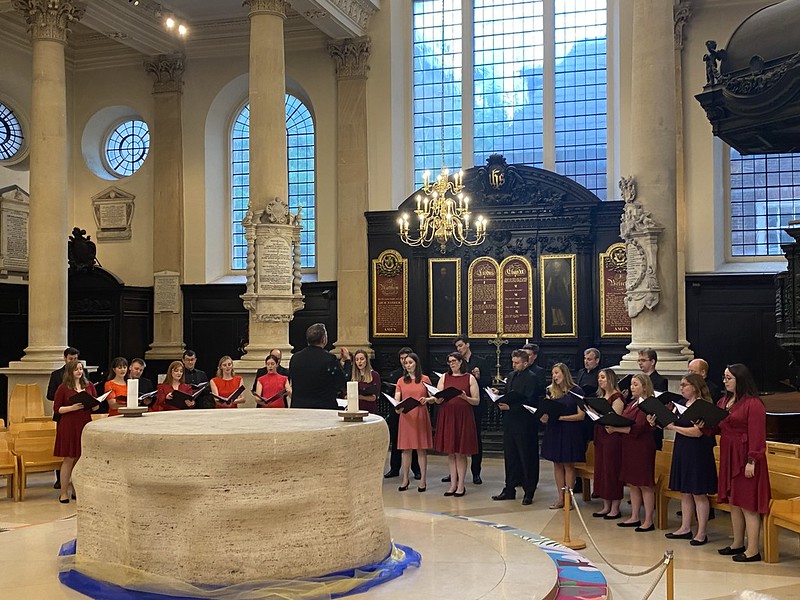
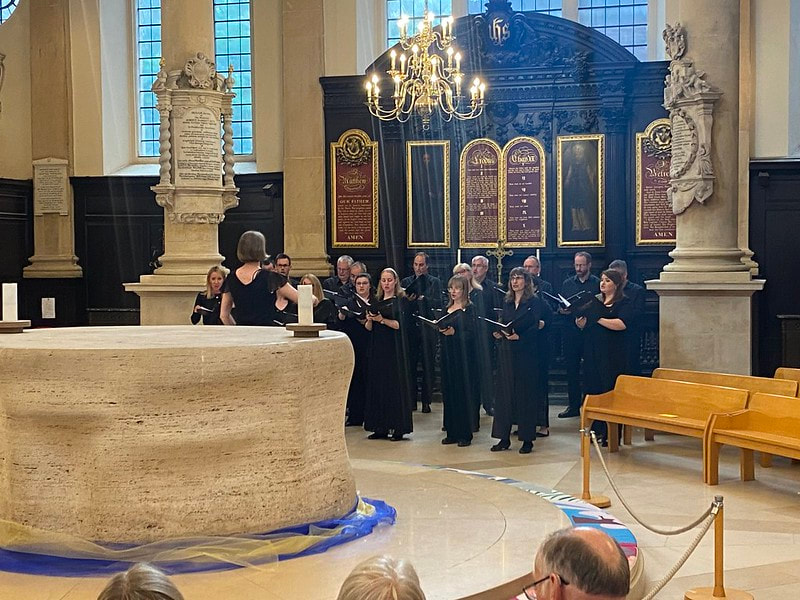
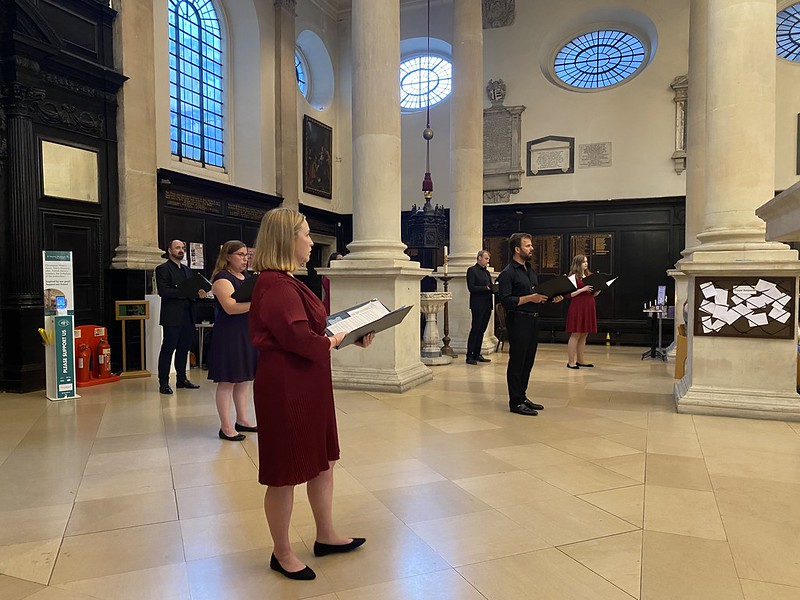
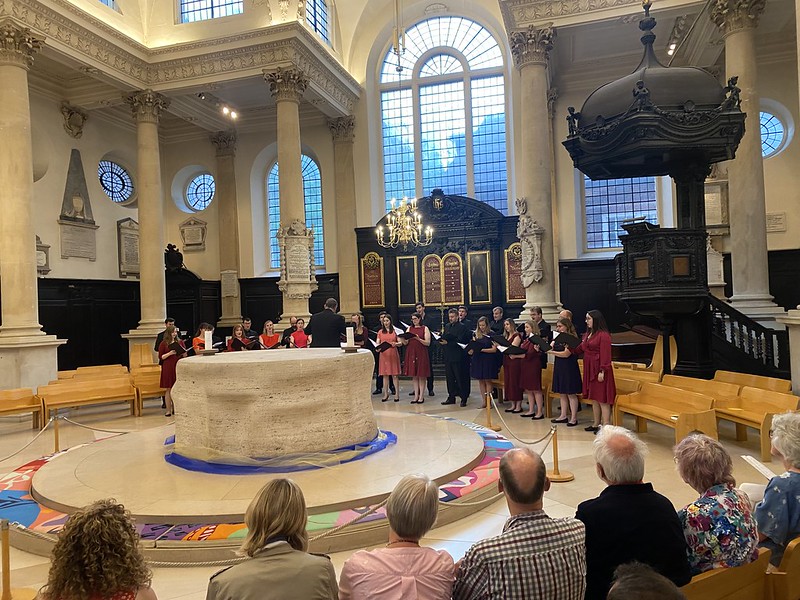
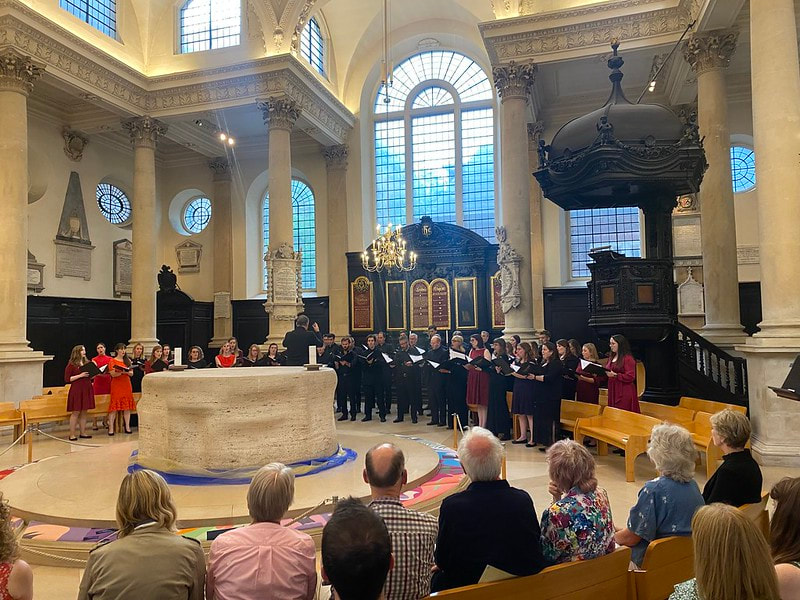
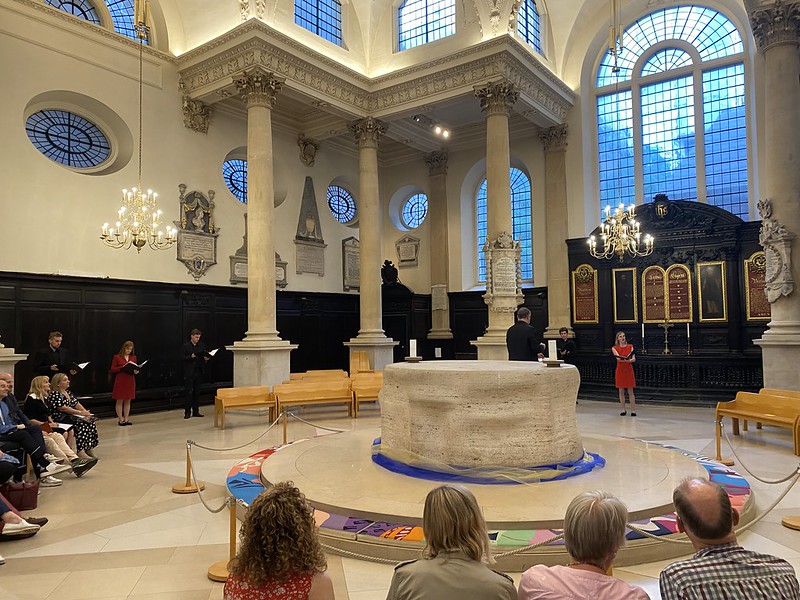
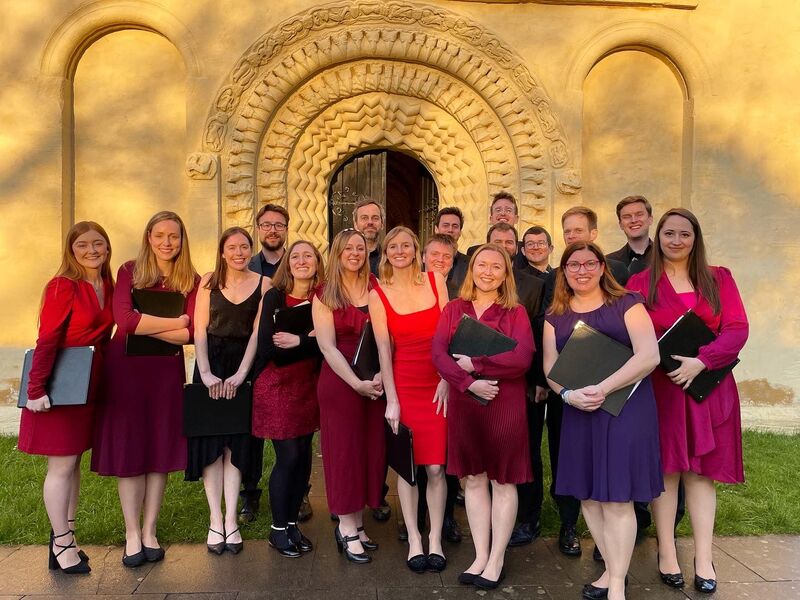
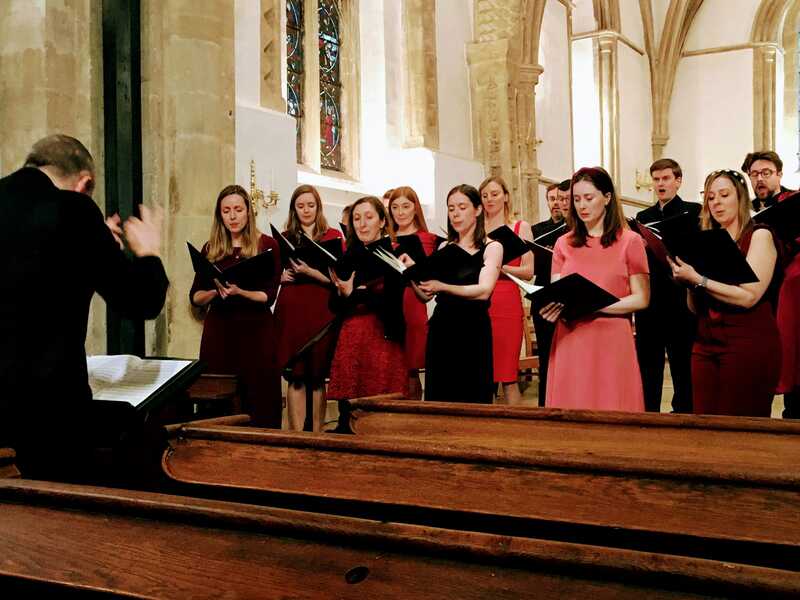
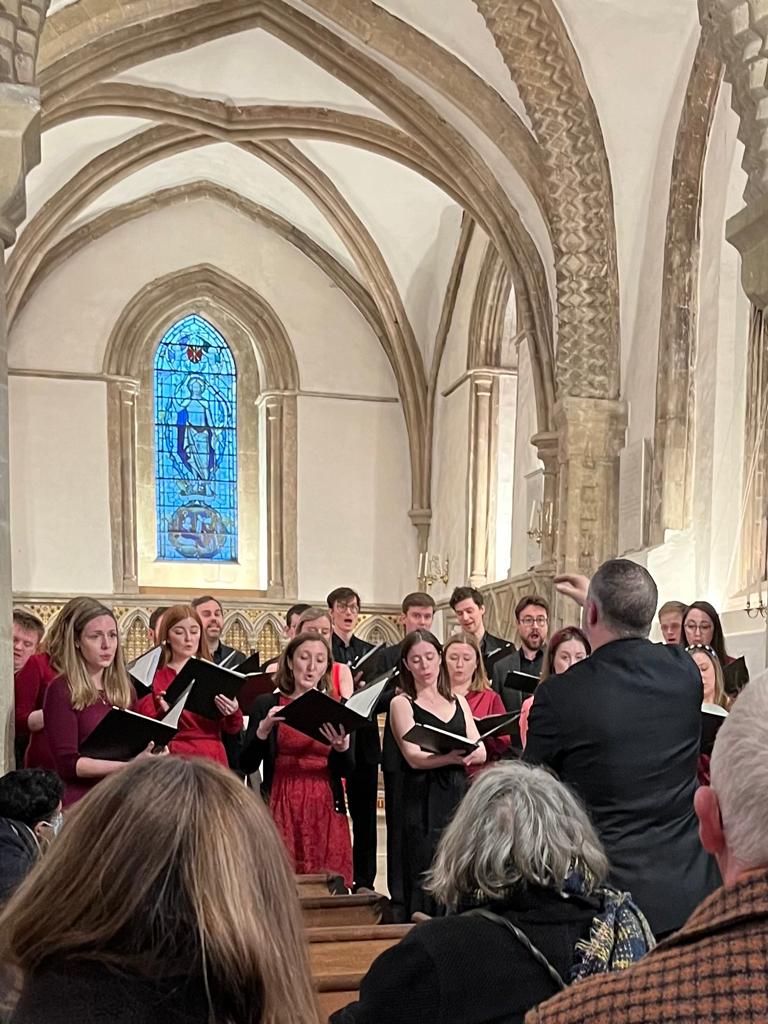
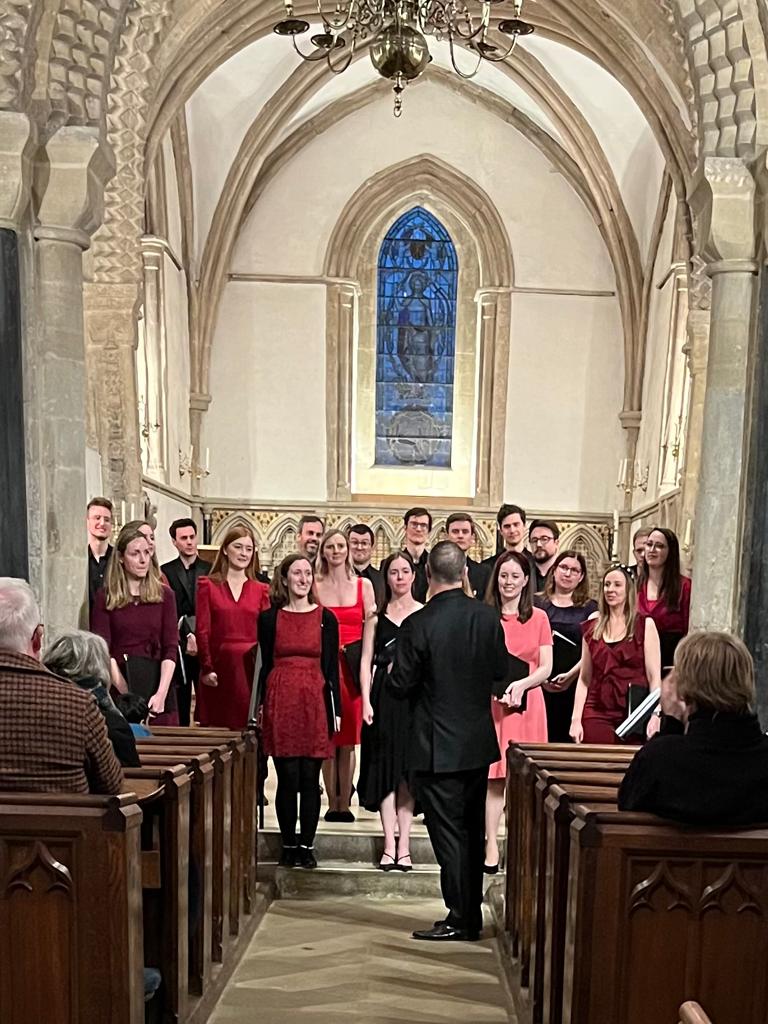
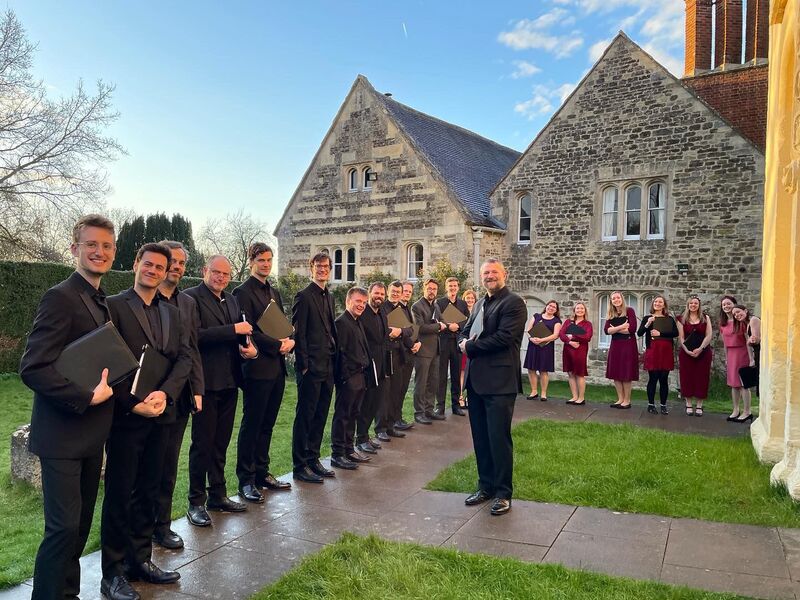
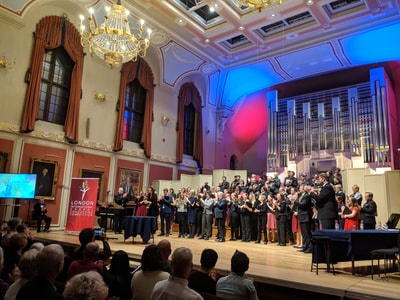
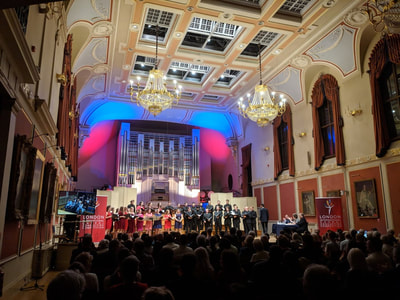
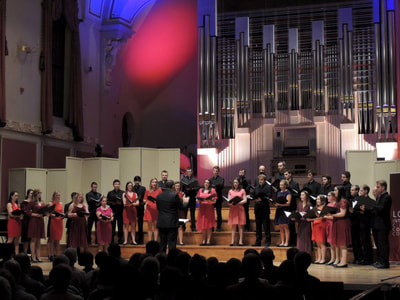
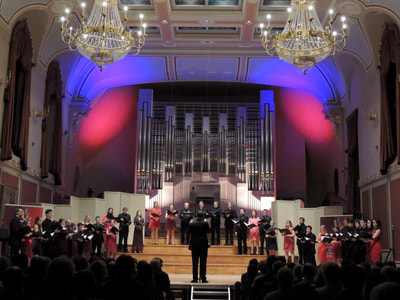
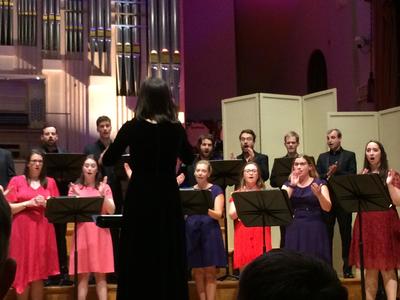
 RSS Feed
RSS Feed